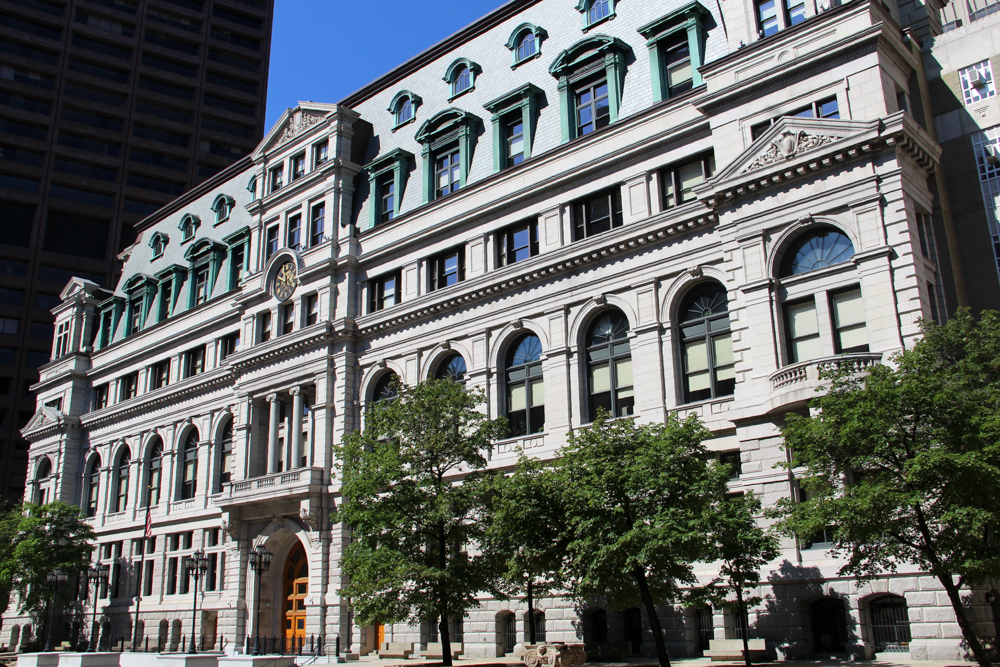In Massachusetts, it is now unconstitutional to sentence any adult under the age of 21 to life in prison without the possibility of parole, a new ruling that will protect emerging adults across the state from life sentences and give potential second chances to those who previously received them.

Advancements in scientific research have confirmed that the brains of emerging adults are not yet fully matured, Chief Justice Kimberly S. Budd explained in the decision Commonwealth v. Sheldon Mattis. Before the court ruling on Jan. 11, Mass. was one of only ten states to sentence emerging adults aged 18 through 20 convicted of first-degree murder to life without parole, and is now the first state to ban it.
“The scientific record strongly supports the contention that emerging adults have the same core neurological characteristics as juveniles,” Budd wrote in the court’s decision.
Those who were sentenced before the ruling will have the opportunity to be released from prison, a move that officials say they have been gearing up for in the months ahead of the decision. But the decision does not mandate release, it only opens up the option.
According to the ruling, those previously sentenced must be granted a “meaningful opportunity to obtain release based on demonstrated maturity and rehabilitation” before the state parole board, who will “evaluate the circumstances surrounding the commission of the crime, including the age of the offender, together with all relevant information pertaining to the offender’s character and actions during the intervening years since conviction.”
Cynthia Goldberg, the Community Organizer for the Campaign to End Life Without Parole (CELWOP), said she’s hopeful for the release of eligible people from Boston facilities.
“I’m looking forward to them showing Boston and society that people do change and people do need a second chance,” said Goldberg, who said her reentry organization will “join forces” with organizations like Prisoners’ Legal Services of Mass. to accelerate the parole process.
Goldberg said CELWOP has rallied and lobbied for life without parole in Mass., which is still a possible sentence for those who are 21 and older.
“We’re gonna continue our education in the community… in churches, schools and now the courts, to educate and show … that people do change,” said Goldberg.
Tegan Retzer, Vice President of BU Prison Outreach Initiative, explained how the ruling will change the Initative’s focus on certain fundraising efforts, allowing for “workshops and talks” that are focused on the “legislative side of the prison advocacy.”
“I think this ruling is going to help those who have struggled early on in life be able to get a fresh start, and not have to be a victim to the circumstances that they’re born into,” Retzer said.
Citizens for Juvenile Justice, an organization that works to reform juvenile justice and other youth-serving systems across the state, said in an email that even though it commends the Supreme Judicial Court for following the research on adolescent development, there is still the need to raise the age which courts begin to try people as adults.
Leon Smith, executive director of the organization, specifically mentioned the “collateral consequences of an adult record that hamper future outcomes” of 18 to 20 year olds who are “incarcerated in adult prisons and jails for less serious offenses.”
As a result, Smith said that this can “only be addressed through raising the age and bringing those youth into the juvenile system,” a system that is “focused on addressing root causes of behavior and promoting rehabilitation.”
Despite celebrations from various advocacy groups, some have expressed their discontent with the Supreme Judicial Court’s decision. On X, formally known as Twitter, comments under a GBH article announcing the news included “despicable” and “get ready for a spike in juvenile violent crimes.”
Others have highlighted effect on racial justice the ruling might have across the state of Massachusetts, where “Black people are serving [life without parole] sentences for offenses at ages 18-20 at a rate more than sixteen times the rate for White people,” according to a 2023 report BU’s Center for Antiracist Research participated in.
Retzer said, in light of the ruling, she hopes the city focuses on increasing opportunities of education and vocational training for communities that have been targeted by the justice system.
However, the court’s ban on life sentences without parole only implies the possibility of parole, Simon Singer, a professor of criminology and criminal justice at Northeastern University, said.
“Just because they now have the possibility of parole doesn’t mean they’ll ever be released,” Singer wrote in an email statement. “It’s up to the parole board to decide, and that decision could be influenced by the nature of the offense.”
CORRECTION: A previous version of this article misrepresented a portion of a statement from Citizens for Juvenile Justice. The updated article reflects this change.


















































































































Valerie Gu • Jan 29, 2024 at 1:30 am
An absolutely historic decision! Hopefully this will bring so much more in the future, and hopefully CELWOP’s ongoing efforts will continue to bring about these changes. What a huge step for Massachusetts.
Wayne Sorel • Jan 28, 2024 at 7:53 pm
I think it’s great that they passed that law; however, I think they should also look at the age 21 through 25… since there is research showing that the prefrontal cortex is not fully developed until 25 years old send
Wayne Sorel • Jan 28, 2024 at 7:51 pm
Five for one am thrilled with the decision. In these incarcerated individuals, which I have been speaking with for sometime now have been educated quite well, and I’m sure it would be fine coming into society.